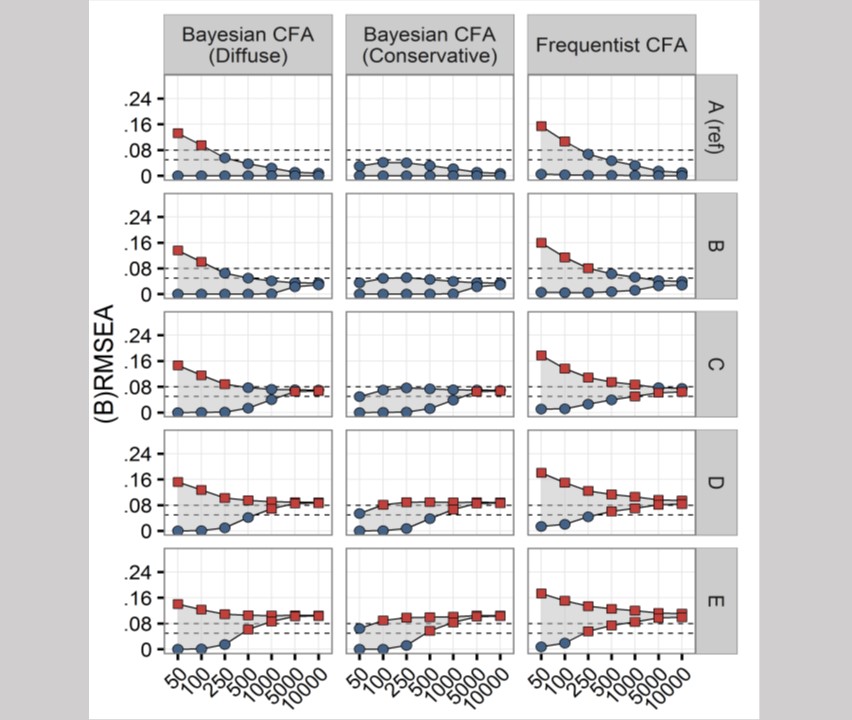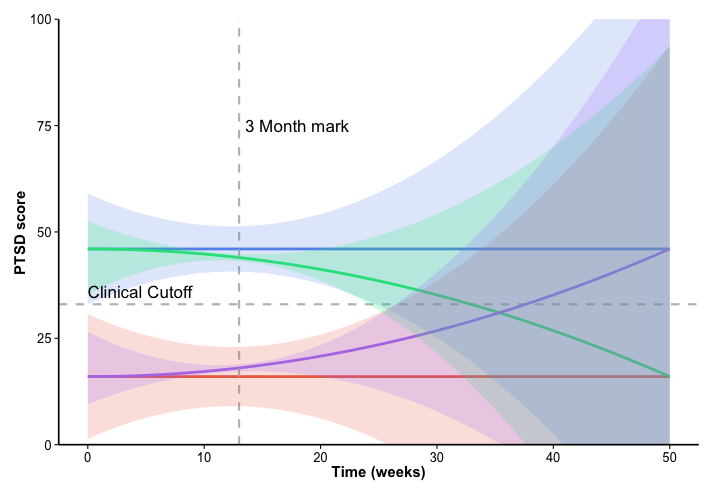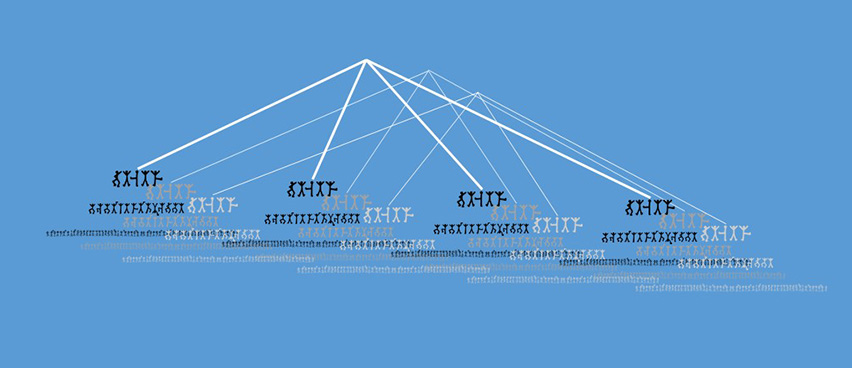A Systematic Review of Bayesian Papers in Psychology: The Last 25 Years
Although the statistical tools most often used by researchers in the field of psychology over the last 25 years are based on frequentist statistics, it is often claimed that the alternative Bayesian approach to statistics is gaining in popularity.
The GRoLTS-Checklist: Guidelines for Reporting on Latent Trajectory Studies
Estimating models within the mixture model framework, like latent growth mixture modeling (LGMM) or latent class growth analysis (LCGA), involves making various decisions throughout the estimation process. This has led to a wide variety in how results of latent trajectory analysis are reported.
Simulation Study Introducing the BRMSEA
Evaluating model fit in Bayesian confirmatory factor analysis with large samples: Simulation study introducing the BRMSEA
Parents’ posttraumatic stress after burns in their school-aged child: A prospective study
Objective: This prospective study examined the course and potential predictors of parents’ posttraumatic stress symptoms (PTSS) after burn injury in their child (Age 8 to 18 years). Method: One hundred eleven mothers and 91 fathers, representing 118 children, participated in the study.
Mplus version 8 with our pppp-value
Very recently Mplus version 8.0 was released containing new Posterior Predictive P-values for BSEM (PPPP; Hoijtink & van deSchoot, 2017; Asparouhov & Muthén, 2017). Muthen and Asparouhov (2012) propose to evaluate model fit in structural equation models based on approximate (using small variance priors)…
Computing complexity for the Bayes Factor in inequality constrained hypotheses
The computation of complexity for the Bayes Factor is described in this tutorial.
Longitudinal Modeling
Typical for developmental psychology are models that capture change over time, such as latent growth (mixture) models and to a lesser extent cross-lagged panel models too. Such models have typically been applied aiming to capture change over time in individuals.
Small Samples
Researchers often have difficulties collecting enough data to obtain statistical power: when target groups are small (e.g., children with severe burn injuries), hard to access (e.g., infants of drug-dependent mothers), or measuring the participants requires prohibitive costs (e.g., measuring phonological difficulties of babies). Such obstacles to collecting data usually leads to a limited data set. Researchers can overcome this through simplifying their hypotheses and statistical models. However, this strategy is undesirable since the intended research question cannot be answered in this way.
Multilevel
Individuals can be conceptualized as a hierarchical system of individuals nested within groups. Such systems can be observed at different ‘levels’, and variables explaining differences between individuals and/or groups may be defined at each level. This leads to research generally referred to as ‘multilevel research’.
My First Bayes
Since the beginning of the 21st century, Bayesian statistical methods are slowly creeping into all fields of science and are becoming ever more popular in applied research.
A coach in your pocket: on chronic cancer-related fatigue and physical behavior
In this dissertation, we focused on two alternative approaches to evaluate the hypothesis of interest more directly, i.e. informative hypothesis testing and model selection using order-restricted information criteria.
New in Mplus Summer School: Retract papers with cross-lagged panel models?
Did you know you no longer should use a standard cross-lagged panel model? Longitudinal mediation analyses using a cross-lagged panel design should ALWAYS account for stable between-person differences with random-intercepts. Should we then retract all the papers without such random-intercepts…? Ellen Hamaker will answer this question…













